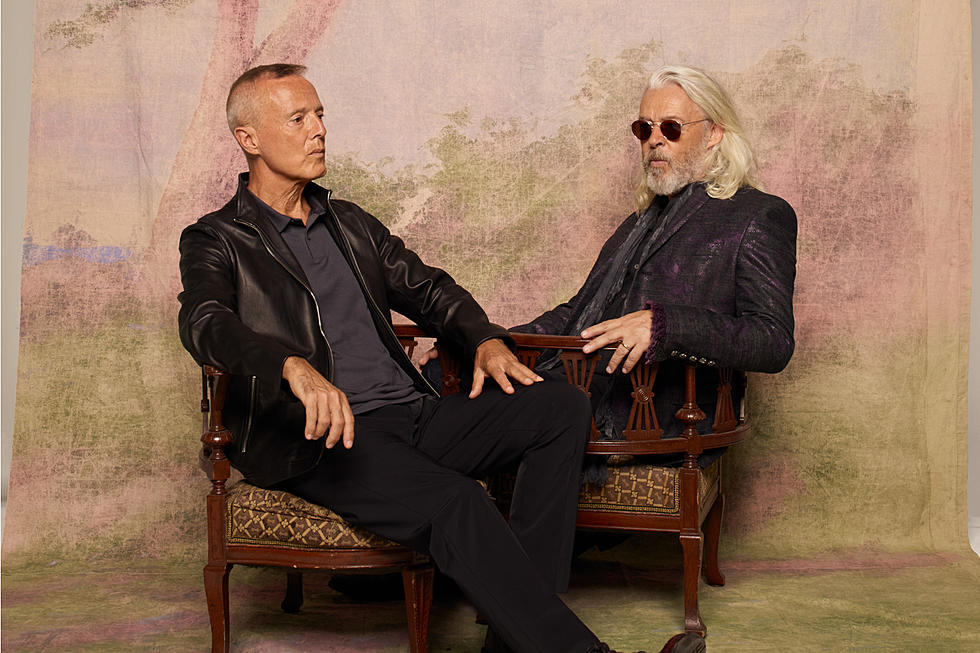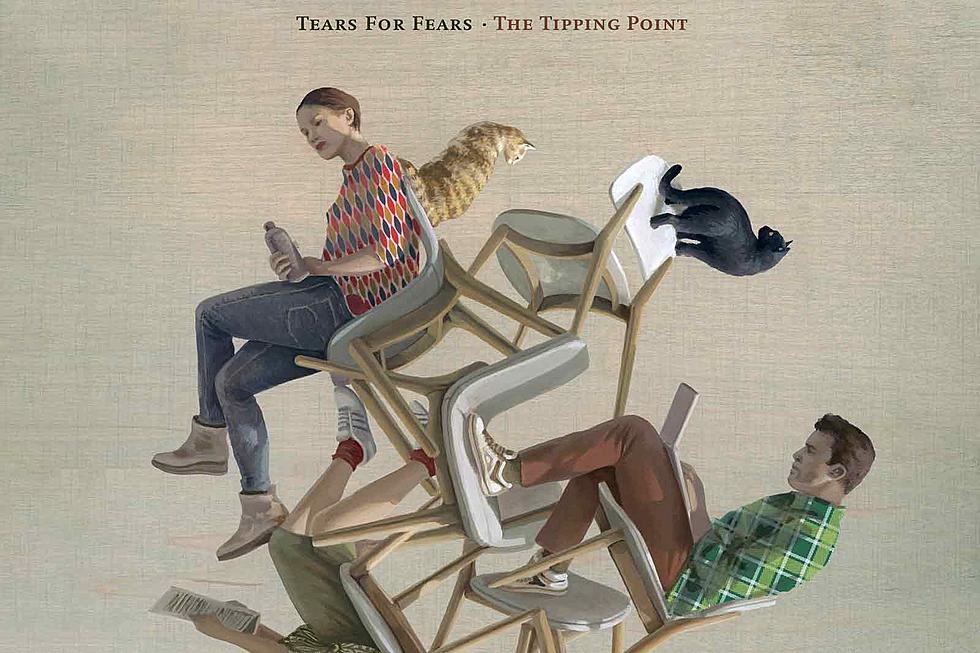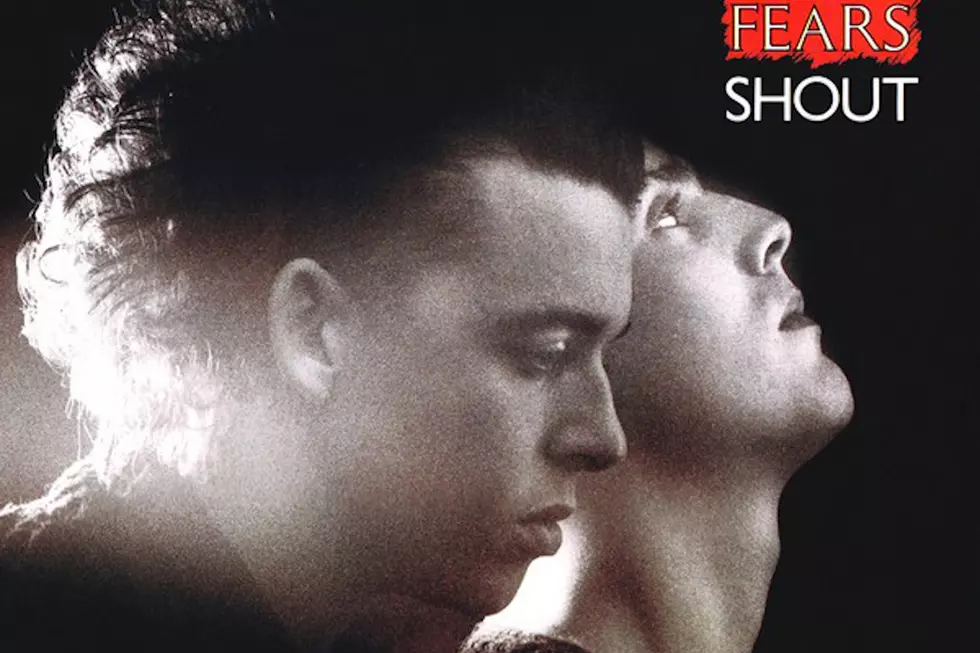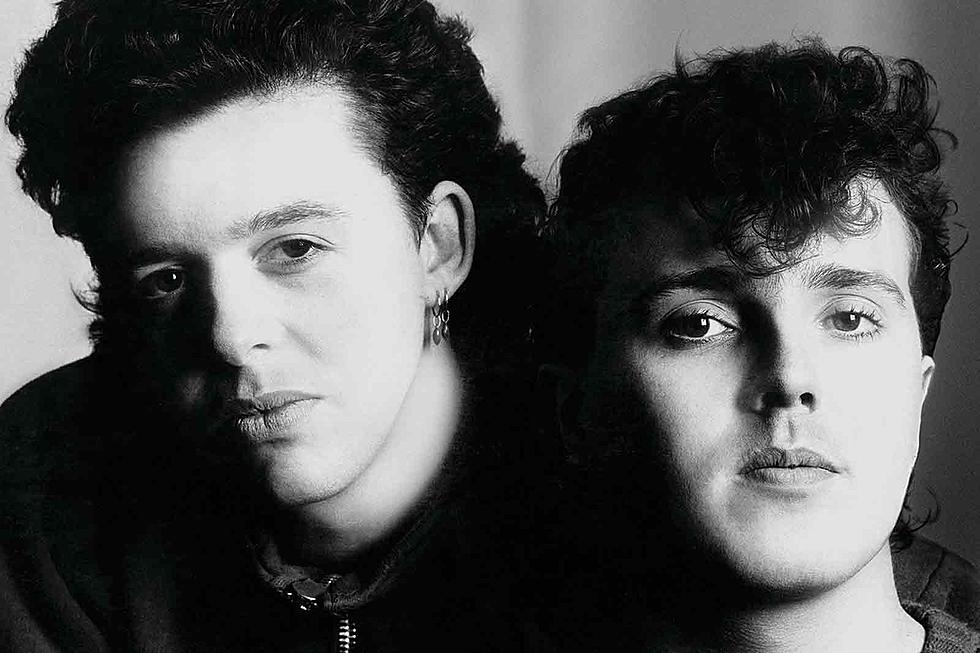
Why Tears For Fears Struggled to Complete Their New Album: Exclusive Interview
Fans could be forgiven for thinking they were never going to hear another new album from Tears for Fears. For a long time, the duo themselves were challenged as they worked to figure out the next chapter.
The heartbreaking loss of Roland Orzabal’s wife Caroline Johnston in 2017 after a decade of illnesses left him taking stock of his issues. Johnston had been connected to both Orzabal and bandmate Curt Smith since the three were teenagers.
Grieving the loss, Orzabal saw his friendship with Smith in a new light. Their recent dealings had been rocky, but Orzabal saw no reason why the relationship couldn’t be fixed. They refreshed a bond over lunch that ultimately led to The Tipping Point, the first new Tears for Fears album in nearly two decades.
For all involved, it was worth the struggle. “Before everything went so right with this album, everything first had to go wrong,” Orzabal admitted in an official release.
Along the way, they allowed themselves an opportunity to embrace that which might seem unconventional. “Pink Floyd’s Wish You Were Here, every musician should listen to that record,” Smith tells UCR. “Purely for the fact that a vocal doesn’t come in until eight minutes and 40 seconds into [the album] – because you know, you can do anything. That album was huge, as we all know, but it’s because it was good. If you do anything well, it can be successful.”
Smith spoke with UCR about The Tipping Point, which will be supported with a summer tour featuring Garbage that begins in May.
To borrow a bit from your first single for this album, it’s truly “no small thing” that we’re holding this new album. You must be really happy to finally be talking about this in a finished form.
I’m very happy. I mean, it’s taken us a while. But the happiness level is certainly great when you love an album. This album, I think, is wonderful. You know, normally when we finish records, I’m kind of done listening to them – because I’ve heard these songs so many times. But this album, at the end of it, the journey it takes you on, I still listen to it. I mean, I listen to it when I go walk my dog and I’m like, “Yeah, we’ve done something that’s really good here.” So in that sense, it’s very gratifying.
Watch Tears for Fears' 'No Small Thing' Video
You and Roland haven’t made a lot of albums together, but what I always appreciate is that the ones that you have made always feel carefully considered.
To a certain degree. I think being in search of a direction of what an album would be can sometimes be a torturous process. This one was especially torturous, but in that sense, everything led to this album. I can’t really knock the process – although, you know, we have said that it wasn’t an enjoyable process and that it didn’t feel right. It didn’t feel particularly honest, but without having gone through that, we would never have arrived where we arrived. So in that sense, it was valuable. One analogy, which is actually quite valid, I was thinking back to when I was touring colleges with both of my children. You know, I ended up touring 35 colleges in America, between both of my kids. It was interesting that the biggest part of the process for them, it appeared obvious to me by the end of it, was finding out where they didn’t want to be. Once you find out where you don’t want to be, you can whittle it down to the type of college you want to be at. Then, you whittle it down from there to the one that you choose. It was kind of that process.
We went and started doing that speed dating [kind of] writing, and came out with a lot of up-tempo attempts at singles. None of it felt particularly honest to me, not that there wasn’t some good things there. There was and we kept some of that, but most of the co-writes and people that we were working with, we didn’t feel a particular affinity towards. Bar one: There was one relationship which happened with Sacha Skarbek that ended up working well. Apart from that, all of the other speed-dating things we did just ended up sounding like these other people trying to stamp their voices or influences on us. We’re not comfortable with that. I think by the end of it, we definitely realized, none of this really sounds like us. It sounds like us attempting to be something else. You know, going through the process of finding out what it was we didn’t want to do, we ended up finding out what we did want to do. We got together in 2020 and started fresh. We kept half of the songs and worked them to a certain degree and wrote half of the album as new songs. [All of that] became The Tipping Point, which we’re both incredibly happy with.
Watch Tears for Fears' 'Break the Man' Video
“Long, Long, Long Time” is really beautiful. How did that one come together?
It was a weird song. I mean, it kind of was about us, leading up to doing this album – or [when] we first started this album – and how I felt our musical relationship was a little bit staid at that point in time. I don’t want to say it was lazy, but we were taking the easy route, going and working with lots of other people. It’s basically about a stale relationship, which was how I was feeling at that time. The song in reverse is actually in a time signature of seven, which is highly peculiar – but it works, for whatever reason. Going into this very melodic beautiful chorus, initially, I tried to sing it and I was like, “No, this really needs to be a female” – because then it would kind of become about a male/female relationship. Carina Round, who is our singer and plays with us in our live band, came in and did the vocal, and then it all kind of came together and worked.
There’s a lot of emotion tied to the subject matter of these songs. What were the hardest ones to do, in that regard?
You know emotionally, well, we’re both singers as everyone knows. So emotionally, it’s normally the tracks you sing that trying to sing them can be sometimes difficult. I think “Stay” was a hard song for me to do, because it really does literally describe the turmoil. You know you have this long-term relationship that’s a personal relationship and a business relationship, but that it’s not healthy for you at this point in time. So it’s a hard decision to leave that behind. Luckily, things worked out, so I didn’t but it was basically talking about that turmoil. It’s easy enough to just walk away from something but when it’s something that you’ve had for this long, it’s a very, very difficult decision to make. It wasn’t easy for me the first time around when I left, but I knew I had to. With my health, it became a decision I had to make. It just wasn’t good for my mental health to be in the band at that point in time. I think singing “Please Be Happy” was really hard. It’s weird, Roland didn’t want to sing it even though he wrote it about Caroline, but it was hard for me to sing – because I’d known Caroline for all of those years too. I guess those two tracks were the most difficult emotionally. I think they should be difficult. If they’re not difficult, then you’re not putting enough emotion into them.
Watch Tears for Fears' 'Mad World' Video
Roland has spoken of hearing “Girls on Film” by Duran Duran, and how he wanted to take a crack at writing something like that – which in part helped to inspire “Mad World.” It made me wonder if there are bands from the ‘80s that you were competitive with that you eventually found to be kindred spirits?
Strangely enough, competitiveness in the music industry was normally limited to if you were in a scene – a music scene. In England, that would be Manchester, London or Bristol. We were the only band from Bath, so there was no real scene. [Laughs.] I’ve never felt competitive with anyone else. ... I think you should go and make the music that you like. I don’t think there’s particularly a lot of commonality between us, and say, Duran Duran, musically. Having said that, knowing them personally, yeah, I mean I really like John [Taylor] a hell of a lot. He’s become a friend. Simon [Le Bon] and I have met on a few occasions and he’s a really nice guy. These are just genuinely nice people. I prefer to judge people on them, rather than the music. They’re genuinely nice people. We have shared history to the extent that we come from the same era so we do have stuff to talk about, but the level of success they were at, I guess we were up there too, but I never felt that. We were never fashionable. We never got into that side of it.
Top 40 New Wave Albums
More From KOOL 101.7










